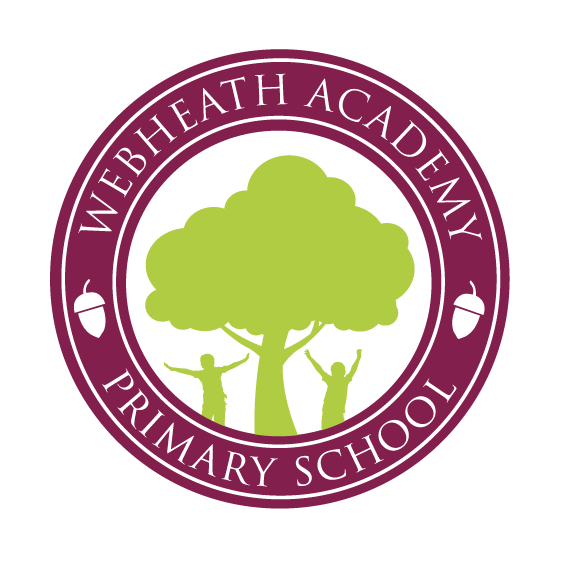Mathematics at Webheath Academy Primary School
Intent
At Webheath Academy Primary School, we intend to provide our pupils with a curriculum that meets the needs of all individuals and provides them with fundamental skills and knowledge for them to become successful in their future endeavours in the wider world, including their adult working life. We strive to ensure they become competent mathematicians through embedding the skills and processes necessary to enable children to use apply their maths knowledge in a variety of contexts. We aim to develop children’s conceptual understanding of maths using concrete, pictorial and abstract representations. Our curriculum is underpinned by a ‘teaching for mastery’ approach where children are guided along a coherent, small step process, promoting fluency, reasoning and problem solving and challenge for all. It allows for our children to make better sense of the world around them, making connections between mathematics and everyday life. We want children at Webheath Academy to have:
• Fluency- the rapid and accurate recall of facts that can be applied to a range of contexts.
• An ability to reason mathematically, following a line of enquiry; conjecturing relationships and generalisations; developing an argument; and providing justification using mathematical proof.
• A confidence to solve problems by applying their mathematical understanding, grappling and persevering with the steps presented to them.
Implementation
Across the school, we follow the learning sequences of ‘White Rose Maths’ which breaks each National Curriculum objective down into smaller steps. Our teachers use the White Rose schemes of learning as a base for teaching, in conjunction with a range of additional materials from the NCETM and high-quality resources. Children are guided through each lesson at the same pace but are scaffolded when required to suit all needs across the class. Our core mathematics lessons follow a structure of:
• Anchor Tasks- used as a tool for eliciting what the children may already know.
• Episodic teaching where the children are actively engaging in representing, calculating, and discussing, gradually becoming more independent.
• Guided practice where the teacher models the work and allows for formative assessments to be made and responsive teaching to take place.
• Tasks in the style of: Do it – What it is and What it’s also (standard and non-standard); Twist it – What it’s not (an active argument about misconceptions and reasoning about mistakes); Deepen it – Opportunities to apply understanding to familiar and unfamiliar problems (including missing number problems, Always/sometimes/Never.
Within our daily maths sessions, we also deliver ‘Basic Skills’ sessions which comprise of key fluency knowledge. This ranges from counting, times tables and four operations, to more complex skills of fractions and percentages. Teachers deliver this in various ways such as songs, chanting, Times Table Rockstars, Flashback 4 and arithmetic style questions.
Early Years
The teaching throughout our Nursery and Reception ensure that our children receive and good grounding in maths. Through focussed lesson time and continuous provision, children learn important skills such as problem solving, understanding and using shapes and measure, all the while exploring concrete resources. We combine the NCTEM Mastering Number programme with the White Rose Maths for Early Years. Teachers skilfully model mathematical vocabulary from the beginning of their school journey and expect the children to articulate this in their own responses.
Impact
To assess the children’s learning in maths, we use formative assessment within every lesson, including questioning, adaptations of the learning, and live marking which allows for immediate feedback to be provided to the children. Across each unit of work, we use the White Rose End of Block Assessments which provide additional insights into the children’s understanding of the learning and their ability to apply this independently. The information from these assessments is then used to inform future teaching and additional teaching that needs to take place. For Key Stage 2 children, summative assessments take place at the end of every half term using Star Maths which are adaptive tests based on a range of mathematical concepts. Attainment and outcomes in mathematics are closely monitored by the class teacher, alongside other leaders, through lesson observations, book looks and pupil interviews.
As a result of our maths teaching at Webheath Academy, you will see children who are:
• Positive about maths, engaged in learning and feel challenged.
• Confident in using the correct mathematical vocabulary in appropriate contexts.
• Increasingly prepared for the world of work, demonstrating an understanding of how to apply core skills to a range of real-life contexts.

